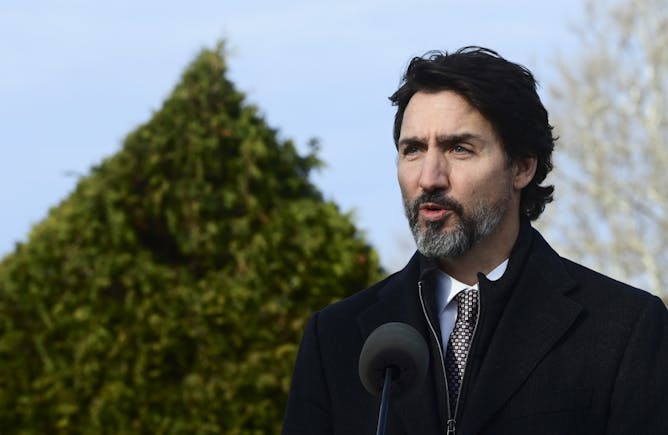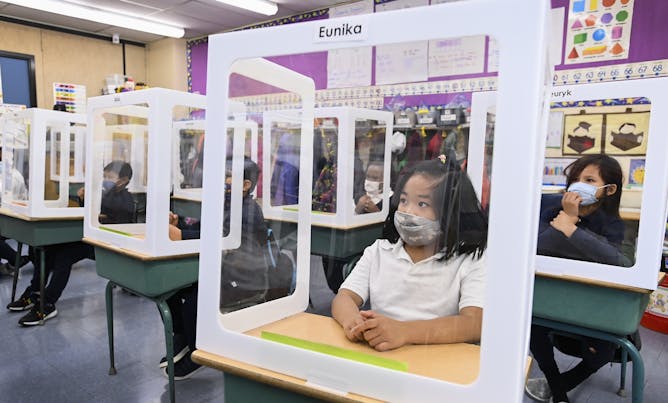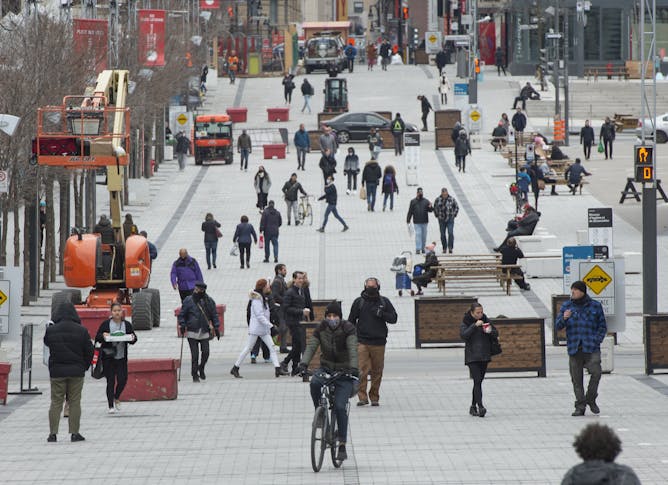|
|
|
|
Last week, Prime Minister Justin Trudeau unveiled new legislation that would set greenhouse gas emissions targets every five years with the goal of reaching net-zero emissions by 2050. On the surface, it seems like an opportunity for Canada to get back on track to meet its international commitments, especially since we have repeatedly failed to meet our climate targets since 1992.
Dig a little deeper, however, and the plan starts to fall apart.
Today in The Conversation Canada, Burgess Langshaw Power from the University of Waterloo takes a closer look at Bill C-12 and finds that it relies far too heavily on expensive, unproven and unreliable carbon capture technologies that we have no way to pay for. Doing so, he says, is flawed and doomed to fail.
Also today:
Regards,
|
Hannah Hoag
Deputy Editor | Environment + Energy Editor
|

|
|

The Trudeau government has tabled a bill that, if passed, would legally bind Canada to achieving net-zero carbon emissions by 2050.
THE CANADIAN PRESS/Sean Kilpatrick
Burgess Langshaw Power, University of Waterloo
Canada is already behind on tackling climate change and catching up will be expensive, but relying on carbon capture technologies is risky and expensive.
|

A woman walks by graffiti reading ‘No vaccine, No tracking, No COVID’, in Montréal on Aug. 16, 2020.
THE CANADIAN PRESS/Graham Hughes
Charles Weijer, Western University
COVID-19 vaccines are at risk of being undermined by vaccine hesitancy. Pharma must take steps to ensure transparency in data monitoring committees and trial data to build public trust in vaccines.
|

Remote learning doesn’t work for all children. Students sit behind screened-in cubicles at St. Barnabas Catholic School in Scarborough, Ont., on Oct. 27, 2020.
THE CANADIAN PRESS/Nathan Denette
Michael Baker, University of Manitoba
As provinces consider extended holidays, or school closures loom as a possibility under COVID-19, schools should commit to providing in-person schooling for students with disabilities.
|

The Dead Sea scrolls show scribes using the theme of four kingdoms (Babylon-Persia, Greece, Rome and the kingdom of God) as a flexible way to prophecize.
(Shutterstock)
Andrew Perrin, Athabasca University
There is a long history of recalculating historical prophecies and projections based on the theme of four kingdoms.
|

CEOs have diverse opinions about the effectiveness of remote work.
(Mohammad Shahhosseini/Unsplash)
Jean-Nicolas Reyt, McGill University
Research and surveys show that many Canadian employees want to continue to work from home, at least sometimes, following the pandemic. But what do CEOs think?
|
La Conversation Canada
|

Des gens déambulent sur une portion piétonne de la rue Sainte-Catherine, à Montréal, le 13 novembre. La pandémie a contribué à une reconnaissance de l’importance de l’espace public.
La Presse Canadienne/Ryan Remiorz
Anne-Marie Broudehoux, Université du Québec à Montréal (UQAM)
Le confinement a contribué à une reconnaissance de l’importance de l’espace public comme lieu de rassemblement et d’équipement essentiel à la satisfaction des besoins de la population.
|
COVID-19
|
-
Michael Head, University of Southampton
Effectiveness is important, but it's not the only game in town.
|
|
Culture + Society
|
-
Carla Gardina Pestana, University of California, Los Angeles
An ex-minister named John Lyford arrived at the nascent colony hoping for a fresh start. But he couldn't escape his past.
|
|
Science + Technology
|
-
Andrew Cushing, University of Tennessee
How do tigers – a top predator – successfully hunt their prey when they have bright orange fur? The secret's in their stripes!
|
|
| |
| |
| |
| |
| |
| |
|
|
|
|
|
|
|